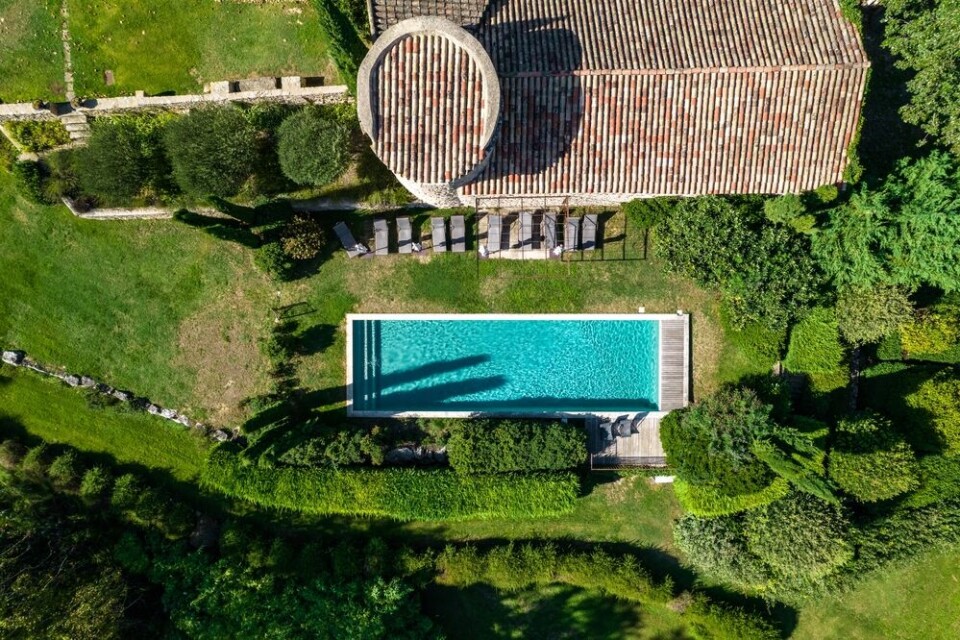-
Paris pledges action against voyeurs in public swimming pool changing rooms
It comes after several women came forward to report similar sexual assaults
-
Senator bids to ban new second homes in several areas - how would it work?
‘These areas are out of control’ says the deputy mayor of Paris in charge of housing who is supporting the idea
-
A million people in France received tax refunds after issues with new property declaration
The problem caused a €1.3 billion overpayment in property taxes with for the tax year 2023
French tax officials to hunt out undeclared sheds and verandas
Scanning software has already detected 140,000 swimming pools from aerial photos

Government software that analyses aerial photos is to start searching for undeclared buildings at private homes, such as sheds and garages, across France.
The Minister of Public Accounts said it comes after the technology's use in finding undeclared swimming pools had proved successful.
The software, which is part of the €30m Foncier innovant programme, is designed to to detect structures that have not been declared for tax purposes using aerial photography.
The photographs used by the software are available to the public and can be consulted here.
“It has detected 140,000 swimming pools [since October 2021], which amounts to €40m more in taxes for local authorities,” said Minister of Public Accounts Thomas Cazenave on March 20.
“Now, we are going to move on to buildings. We have already started the work and hope to deploy the system over the course of the year in collaboration with the tax office,” he said.
Swimming pools, garages, covered terraces and sheds that are larger than 5m² can all add to a property’s valeur locative cadastrale (VLC), which is used as a basis to calculate the taxe foncière and the taxe d’habitation (on second homes).
Read more: Tax and planning: When and how to declare a swimming pool in France
By not declaring the existence of a swimming pool or building - or by underreporting its size - homeowners are essentially committing tax fraud.
“When the software shows tax officials that there is an undeclared swimming pool or building, they must then verify this against what the homeowner has declared,” Damien Robinet from tax workers’ union Solidaires Finances Publiques told Capital.
“If the information is valid, then the system sends an automatic notification to the homeowner that their taxes will be adjusted due to the findings.”
In most cases, the homeowners must pay higher taxes but typically face no punitive action if they simply recognise their mistake - however, in theory, they could be forced to repay up to three years in back-taxes.
Read more: ‘Garden shed’ tax in France: what rises in 2024 and what exemptions?
In addition to the owed taxes, homeowners could also face fines of up to €150 for each undeclared structure.
Any structures built without planning permission could incur fines of €1,500. The mairie could also order them to be demolished.
‘90% mistakes’
People who receive notification from the tax office about undeclared swimming pools and buildings can dispute the findings. Indeed, the Foncier innovant programme has been known to mistake blue tarpaulins for swimming pools.
According to Olivier Villois, national secretary of workers union Finances publiques CGT, the system initially had a close to 90% error rate.
“My colleagues on the ground say that mistakes are around 55% to 60% at the moment, which represents real progress!”
It is unknown precisely how effective the software is in detecting buildings. In July 2023, Minister of the Economy Bruno Le Maire said the system “needs time to work as well [for buildings] as it does for swimming pools.”
The Foncier innovant programme has also faced criticism for failing to cover all areas of France equally.
Read more:
French tax office begins to use aerial shots to find undeclared pools
Taxe foncière French property tax: what rises to expect in 2024?
























